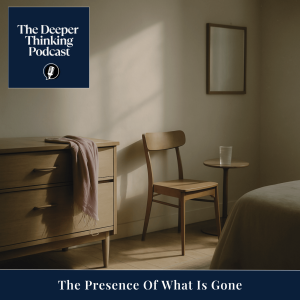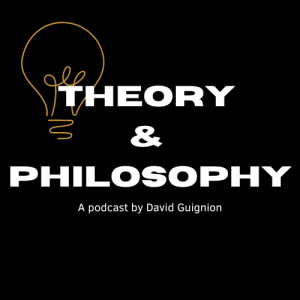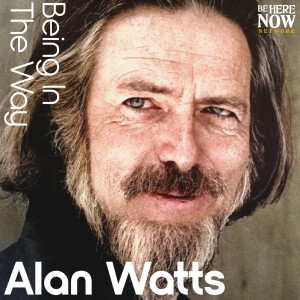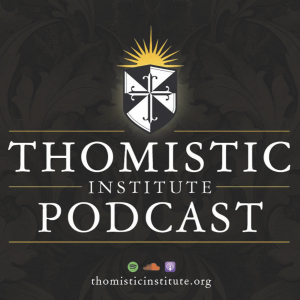

The Presence of What is Gone
The Deeper Thinking Podcast
A meditation on memory not as what we remember, but what remains with us—embodied, atmospheric, and unresolved.
Some things don’t leave. They recede, they quiet, they fold into the background—yet their presence lingers. Not as memory in the traditional sense, but as atmosphere. As interruption. As an intimacy that returns without warning. This episode explores memory not as recollection, but as the return of what never fully disappeared. A haunting that is less about ghosts than about gestures. Less about the past than about its insistence on being felt in the present.
We turn to Jacques Derrida, Henri Bergson, and Paul Ricœur to rethink memory: Derrida’s hauntology evokes the presence of absence, Bergson’s durée describes time as qualitative flow, and Ricœur’s narrative identity reframes remembrance as an evolving act of being. Memory is not just archived thought—it’s lived structure, echo, and return.
This is not about supernatural haunting. It’s about the shape of what’s gone and how it outlines the living. A scent, a corridor, a stillness—these are how memory touches us before thought arrives. What we call “haunting” may be a form of care. Or continuity. Or even grace.
Reflections
- How does absence remain embodied?
- Can memory be understood as architecture?
- Is haunting a form of ethical presence?
- How do we carry what is no longer ours?
Why Listen?
- Rethink memory through sensation, rhythm, and space
- Encounter hauntology as a philosophical, not spooky, idea
- Learn how narrative identity shapes our experience of time
- Hear a poetic, quiet philosophy of what remains
Listen On:
- YouTube
- Spotify
- Apple Podcasts
Support This Work
If you'd like to support the ongoing work, you can visit buymeacoffee.com/thedeeperthinkingpodcast or leave a kind review on Apple Podcasts.
Bibliography
- Barthes, Roland. Camera Lucida: Reflections on Photography. Translated by Richard Howard. New York: Hill and Wang, 1981.
- Bergson, Henri. Matter and Memory. Translated by N.M. Paul and W.S. Palmer. New York: Zone Books, 1991.
- Damasio, Antonio. The Feeling of What Happens: Body and Emotion in the Making of Consciousness. New York: Harcourt, 1999.
- Derrida, Jacques. Specters of Marx: The State of the Debt, the Work of Mourning, and the New International. Translated by Peggy Kamuf. London: Routledge, 1994.
- Federici, Silvia. Re-enchanting the World: Feminism and the Politics of the Commons. Oakland: PM Press, 2018.
- Merleau-Ponty, Maurice. Phenomenology of Perception. Translated by Colin Smith. London: Routledge & Kegan Paul, 1962.
- Ricœur, Paul. Memory, History, Forgetting. Translated by Kathleen Blamey and David Pellauer. Chicago: University of Chicago Press, 2004.
What lingers is not what was, but what refused to leave.
#Memory #Hauntology #JacquesDerrida #HenriBergson #PaulRicoeur #Embodiment #Phenomenology #TheDeeperThinkingPodcast
More Episodes
All Episodes>>Create Your Podcast In Minutes
- Full-featured podcast site
- Unlimited storage and bandwidth
- Comprehensive podcast stats
- Distribute to Apple Podcasts, Spotify, and more
- Make money with your podcast












